

Relational Trauma Repair- Sociometrics (RTR-S) Overview
Meet Tian Dayton PhD, TEP
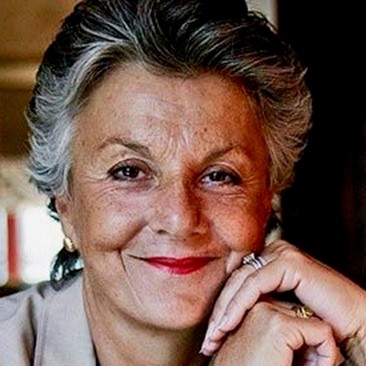
Meet Our Trainers
Are you an RTR-S certified trainer and want your information listed?
David Moran, LCSW, CCDP, TEP
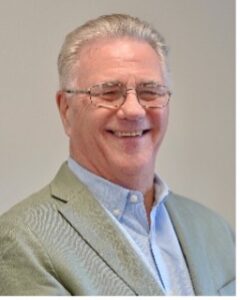
Karen Levin Moser, LCSW, PAT
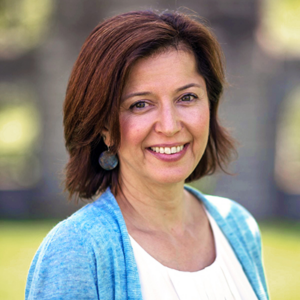
Rebecca Lillywhite, LCSW, CP/PAT

Frank Bartolomeo, PhD, LCSW

Kera Passante, MS, LPC

Margaret A. O’Hara PhD, LMHC, LPCC, NCC, BC-TMH, CET II, CASAC, ICADC, PPS
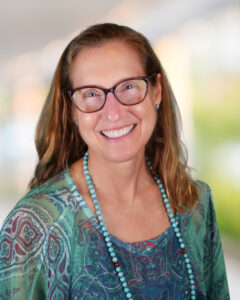
Margaret is Subject Matter Expert and Expert Consultant for the California licensing board. She was President of East End Counseling Association, named 2006 Counselor of the Year. She was Division President of Association of Specialists in Group Work for the NY Counseling Association. Margaret served as President and Ethics Chair of the California Association of Licensed Professional Clinical Counselors. A lifetime member, she remains active on the Ethics Committee.
Gittel Twersky, LCSW, CASAC
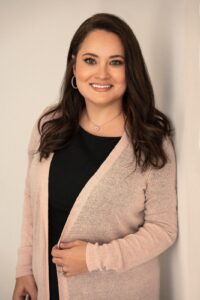
Heather Monroe, LCSW
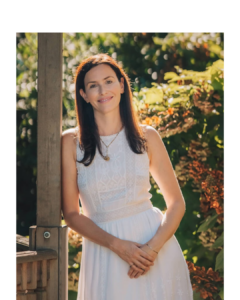
Joseph Twersky, LCSW, CASAC
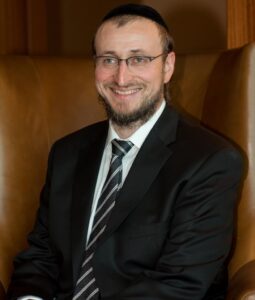
His humble mission of bringing people closer to their inner happiness has been the driving force throughout his various positions in the mental health field since 2007. Holding an LCSW, CASAC, and Bachelors degree, Joseph has filled many roles supporting the mental and emotional health of his community including providing counseling, developing support groups, helping people overcome addiction, and providing psychotherapy to adults coping with trauma, anxiety, and social dysfunction, among other struggles.
Joseph recognizes that seeking help is often the greatest challenge for individuals in their journey to self-healing and has tremendous respect for those who take the high road. An avid listener and connector, Joseph conveys an open heart and mind with a firm determination to spark positive change, enlighten and offer hope.
Joseph is a lover of nature and a connector at his core. His hobbies include connecting to others through song and conversation, reading, and diving deep into Jewish history.
‘Every person deserves the gift of hope, the ability to accept themselves fully and to recognize their tremendous potential.’
Tami-Jo Stevenson

She has completed her advanced level of training in Somatic Experience making her an SEP, and is certified as a Level I IFS (Internal Family Systems) therapist. Additionally, she is a certified trainer in Sociometrics and has been training with Tian Dayton for three years in Psychodrama. Tami-Jo has completed 200 hours of specialized trauma training through Spirit to Spirit to become a Certified Trauma Therapist. Other certifications include; Trauma-focused Cognitive Behavioral Therapy, Suicide Prevention, Nonviolent Crisis Intervention, and as a Domestic Violence and Sexual Assault Victim Advocate.At High Watch she utilizes these advanced modalities to help guests work through their trauma and addiction. She believes in the importance of 12-step recovery as well as other evidence-based practice in preventing relapse, which is a central focus of her work.
She is very active as a volunteer and leader in the non-profit behavioral health community and serves on the Board of Directors of the McCall Center for Behavioral Health in Torrington, CT for the last 14 years.
Tami-Jo received her BA in Social Work from Central Connecticut State University. She received a Master’s in Social Work from Fordham University.
Ricki Ellen Gorman MSN, Accredited Journey Life Coach
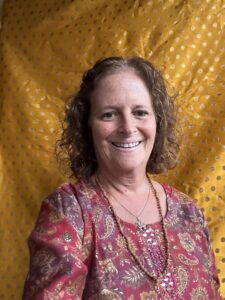
Ricki offers individual client sessions both in person and through Zoom or phone, alongside in-person and virtual workshops. Integrating guided meditation, experiential modalities, art, and journaling, she facilitates transformative experiences. Notably, Ricki has presented workshops like “Freedom Within: Finding a Deeper Connection to Our Soul,” “From Darkness to Light,” and “Vision Board.”
Beyond her professional endeavors, Ricki indulges her artistic talents, directing art programs and expressing herself through mediums such as the pottery wheel, drawing, collage, needlework, and mixed media. Her passion for photography shines through the captivating images on her website, where she reveals hidden narratives, inviting viewers into her world of visual storytelling.
Ricki’s unwavering dedication inspires transformation, healing, and authentic self-expression, leaving an indelible mark on those whose lives she touches.
Steps to Obtain the RTR-S Certificate
- Maintain a current credential or license issued by a state or credentialing authority as a Coach, Peer, Credentialed Alcoholism and Substance Abuse Counselor (CASAC), Certified Addiction Counselor, Social Worker, Mental Health Counselor, or Licensed Marriage & Family Therapist (Upload proof of your license or certification in the form of a scanned copy of your state license, certification, or online proof of license/certification/education)
- Complete 14 Hour (2 training days) in-person RTR-S Basic Training. (Upload proof of your completed two-day, “RTR Sociometrics” training in the form of a training certificate.)
- Complete 21 Hour, RTR-S Virtual Training Course on TPN.health, which includes six modules of video-guided trainings, readings, and content knowledge post-tests (Will be tracked on TPN.health)
- Complete 8-Hour Virtual live RTR-S Training/Supervision (5 training days) with Tian Dayton on TPN.health (Will be tracked on TPN.health)
- Step-in-circles
- Spectrograms
- Locograms
- Floor Checks (avoid the floor checks that require a master level therapist e.g.cPTSD Floor Check)
- Resilience Timeline
- Experiential Letter Writing
- Complete 21 hours of additional training with any PAT/TEP/RTR-S approved trainer or global equivalent. Up to 1/3 hours may be obtained virtually. (Upload proof of your training hours in a PDF document. Please compile all completed certificates into one PDF file.)
- Step-in-circles
- Spectrograms
- Locograms
- All Floor Checks
- Experiential Letter Writing
- Attachment Timelines/on paper and for group process
- Resilience Timeline/on paper and for group process
- Social Atoms/On paper with Empty Chair/One or Two-person role play
- Empty Chair/One or Two-person role play
- Complete 24 hour Sculpting the Social Atom Training
- Book- The living stage 90 pages- (39,144 words)
- In-person Sculpting the Social Atom Training
- Step-in-circles
- Spectrograms
- Locograms
- All Floor Checks
- Experiential Letter Writing
- Attachment Timelines:/on paper, for group process and simple role play
- Resilience Timeline/on paper, for group process and simple role play
- Empty Chair/One or Two-Person Role PlayPerson Role Play
- Social Atoms/Simple Sculpture
Benefits of Obtaining a Certificate in RTR Sociometrics
- Floor Checks
- Step-in-Circles
- Locograms
- Spectrograms
- Experiential Letter Writing
- Timelines
- Social Atoms
How to Upload and Track Certificate Completion
Follow the RTR-S Profile on TPN.health!
-
- Our community board, which is a space for sharing experiences, implementing RTR-S, exchanging tips, and gaining inspiration from both
personal and professional insights. - Find local RTR-S in-person training opportunities.
- Connecting & engaging with our trainers.
- Ability to bring educators to your organization.
- Once certified, host an RTR-S training.
- Our community board, which is a space for sharing experiences, implementing RTR-S, exchanging tips, and gaining inspiration from both
Host a Training at Your Own Facility or Space
- Host a small group, 2-day RTR-S in-person training for your clinical team.
- Bring an RTR-S trainer to your symposium, conference, or collaborate with Dr. Dayton and TPN.health to host a community-based RTR-S event!
RTR-S Level III Trainers: Host a Training with TPN.health
-
- Host your own in-person 2-day trainings with comprehensive support from the TPN.health team.
- Assistance with marketing, accreditation, customer support, and more.
Frequently Asked Questions (FAQ)
Q. Will RTR-S train me to do psychodrama?
No, RTR-S is based on the theory and practice of sociometry and Dr. Dayton’s floor checks. Psychodrama is the role play part of JL Moreno’s triadic system psychodrama/sociometry and group psychotherapy. RTR-S includes empty chair and experiential letter writing which is a form of role play derived from psychodrama but not full psychodrama.
Q. Can I use RTR-S in one-to-one therapy?
Yes, the timelines, social atoms, experiential letter writing and empty chair role plays,are all usable in one-to-one work.
Q. Can I use RTR-S for virtual work?
Yes, RTR-S converts nicely to virtual work. Especially usable for virtual work are timelines and social atoms and very simple role plays.
Q. Is RTR-S the same as what people call experiential therapy?
No. RTR-S is based on the theoretical framework of JL Moreno’s triadic system of psychodrama, sociometry and group psychotherapy. Experiential therapy, as it is often used, does not have an overarching theoretical framework. It tends to be a “one off” approach with each process being singular. It tends to be goal oriented and have specific expectations in that the therapist has outcomes in mind for the client and may push for those outcomes or state them explicitly. Experiential therapy does not tend to allow for the autonomy of the client, rather the therapist is the driver of the action.
Q. Can sociometrics like spectrograms, locograms, step-in-circles and floor checks be adapted for use in a variety of populations?
Yes, they can be adapted for specific populations by changing the material on floor cards in floor checks and the criterion questions or prompts that are asked of the population working.